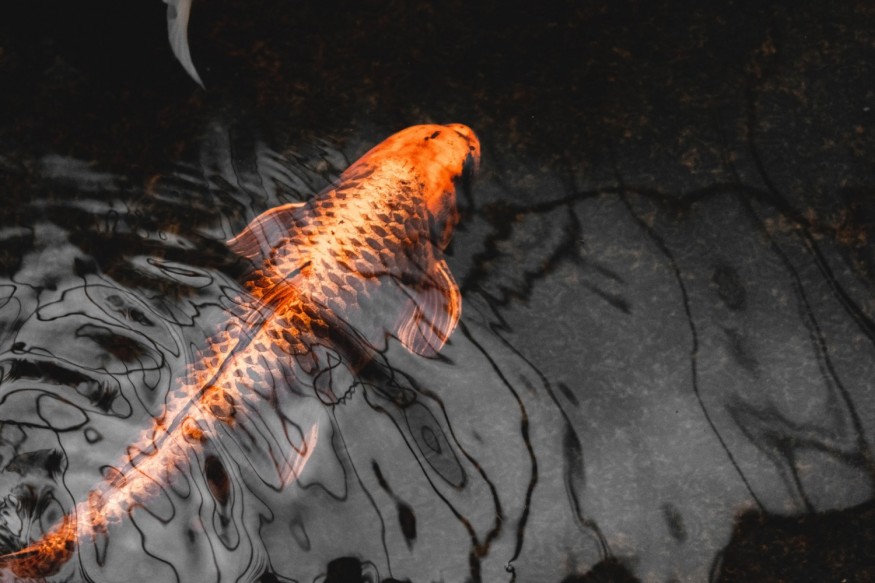
UK angler Andy Hackett finally reeled in "The Carrot," a monstrous goldfish with a staggering weight of 67 pounds, 4 ounces, after a 25-minute battle. According to BlueWater Lakes, the fishery in the Champagne region in France where the giant lives, the carp is thought to be the second largest of her kind to ever be caught.
The enormous goldfish-like creature effortlessly stands out on the water's surface because of its eye-catching orange color.
The Carrot in BlueWater Lakes
The prized fish, a cross between a koi carp and a leather carp, was caught by Hackett on November 3 while he was at the lake location.
Hackett told BBC that when fish are just below the surface, it can be difficult to see them, but because The Carrot is so obviously bright orange, no one can miss it. It is a fish that is highly sought after because so few people have ever managed to catch it.
According to the BBC, BlueWater Lakes offers anglers a private area to try their luck at reeling in one of the many fish there that weigh more than 50 pounds or 22.7 kilograms, and some even more than 90 pounds or 40 kilograms.
Jason Cowler, a fishery manager, told the Daily Mail Online that about 20 years ago, they added The Carrot as a unique fish to catch for the customers. Since then, it has continued to grow, but it rarely emerges. Although it is not the lake's largest resident, it is unquestionably the most notable.
The Carrot was hauled in by Hackett and weighed before being returned to the lake. There is a "no retention" rule in place in this fishery, so anglers are not permitted to bring fish onto land. The BlueWater team also stated on its Facebook page that the fish are promptly released back into the water after receiving any necessary medical attention.
The fishery has kept a close eye on Carrot's development because last season, fishermen pulled her in nine times. The carp managed to swim free for nine months after reaching 60 pounds or 27 kilograms for the first time in February before Hackett reeled her in.
Indeterminate Growth of Goldfish
The typical domestic goldfish only weighs less than one pound, but under certain conditions, the species can grow to much larger proportions. Carp species, such as koi and goldfish, have the capacity for significant growth if provided with ample space, the right diet, and favorable water conditions, which accounts for Carrot's impressive size.
The biggest goldfish discovered are frequently unwanted pets that owners abandon in the wild. A natural habitat's delicate balance can be adversely affected by abandoned animals. In July 2021, invasive goldfish the size of a football were discovered in a lake in Burnsville, Minnesota. Because doing so might harm the ecosystem, city officials begged residents not to release their unwanted pet fish into the lake.
Dr. Zeb Hogan, a research biologist from the University of Nevada, Reno, said that a carp that weighs 70 pounds is an enormous, impressive fish. There are several different species of carp, relatives of goldfish, that can grow to enormous sizes and are found in Europe and Asia. Some of these fish can weigh up to 500 pounds. Hogan used to host the National Geographic Channel's "Monster Fish" program.
According to Hogan, the growth observed in these large fish is known as "indeterminate growth," which is a condition in which animals grow quickly when young and continue to grow in size after reaching adulthood.
Hogan added that the longer they live, the more they just keep growing. It will simply keep expanding, and perhaps in a few years, when someone else catches it, the fish will be even bigger by then.
Carrot is in excellent health and condition, according to the fishery team's Facebook post, and may live another 15 years or more. The team wished for her fame last for a very long time, CNN reports.
Related article : 120-Pound "Monster" Blue Catfish Released Back to Water by Tennessee Fisherman, Might Break Record
© 2025 NatureWorldNews.com All rights reserved. Do not reproduce without permission.






